Snacks on trend
This is a special feature from PAX International's 2022 Amenities & Comfort digital edition with bonus Food & Beverage coverage, on page 8.
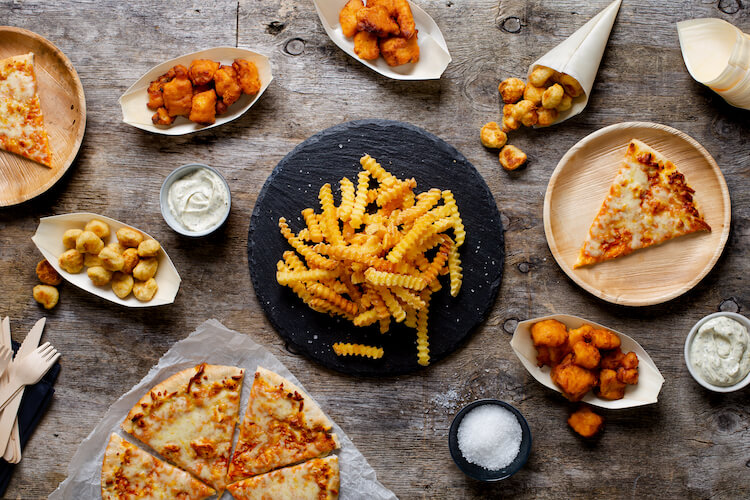
Snackbox To-Go is known for its crispy fries and snacks
The inflight passenger experience is largely linked to the food and beverage options available. Having options that meet dietary, cultural and personal expectations is major, and this means having tasty, healthy, safe and sustainable choices.
LSG Group’s trend report entitled Upcoming Culinary, Consumer and Industry Trends, published in January 2020 and reviewed in October of that year to predict the effects of COVID-19 on the findings, highlights mindfulness in food choices and sourcing of food as two of the trends accelerated by the crisis.
“Being able to identify the ingredients is now more important due to health reasons and sustainability; transparency is a growing topic,” the report reads. “There is growing interest in products that are rich in vitamins, nutrients, probiotics or other ingredients to boost the immune system.”
The report addresses consumers’ growing awareness of what they eat and how it impacts the planet. They are also seeking more information on the origins of their food and its production, increasing the demand for socially and environmentally conscious options.
“Consumers are increasingly opting for regional produce and meats. In most regions around the world, people are also going organic,” it reads.
It also mentions that during lockdowns people find solace in treating themselves to comfort food. The trend is expected to remain steady category (as in, the same as pre-COVID), with consumers choosing snacks that are rewarding and comforting.
As people return to travel, these topics are a major focus for three Netherlands-based suppliers.
Best fries in the sky
Known for the ‘best fries in the sky,’ Snackbox To-Go, introduced its Halal, gluten free, lactose free, vegan crispy fries to the industry 25 years ago. The company went on to create fries specifically for preparation in airline ovens in a special snack box, and now offers snack boxes of cakes, pancakes, hot snacks, paninis, burritos and more for buy-on-board programs as well as second service.
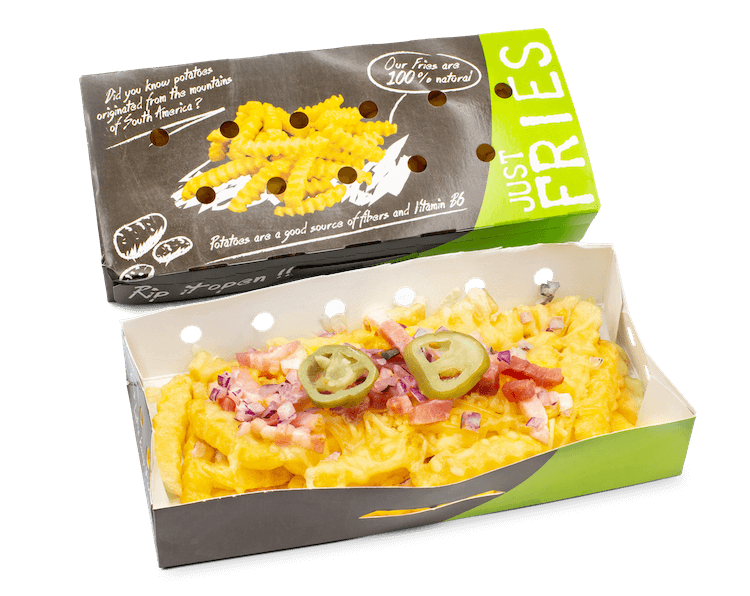 Snackbox To-Go offers snack boxes of cakes, pancakes, hot snacks, paninis and burritos
Snackbox To-Go offers snack boxes of cakes, pancakes, hot snacks, paninis and burritos
“We think that people who travel will treat themselves onboard. However, the healthier choices, such as veggie and Halal, are also in our portfolio, and this trend is growing rapidly,” Kees Verschuure, Sales Director for Snackbox To-Go, tells PAX International.
The new vegan sausage roll is expected to be popular among customers, Verschuure says. It “ticks all the boxes of current expectations,” he explains. It is Halal and suitable for both vegetarian and vegan diets. It combines the desires of a hot, comforting snack while maintaining health and safety in its individual snack box.
“Inflight experiences created by Snackbox To-Go are designed to be perfect for inflight catering because they are convenient,” he explains. “They are freezable, ovenable and can be presented to the customer straight after preparation. This no-handling process is fast and hygienic.”
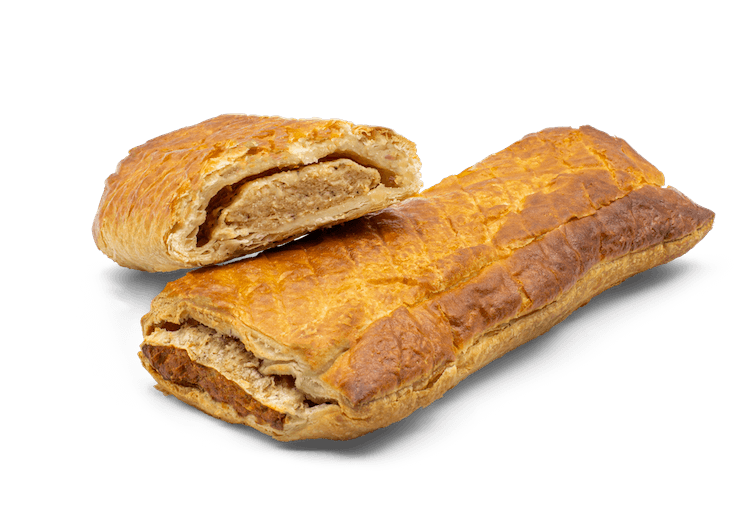 The sausage roll from Snackbox To-Go is Halal and suitable for both vegetarian and vegan diets, providing a hot, comforting inflight snack for passengers
The sausage roll from Snackbox To-Go is Halal and suitable for both vegetarian and vegan diets, providing a hot, comforting inflight snack for passengers
The ovenable packaging includes a box and foil that allows products to remain separate from each other but evenly-heated through the cooking process. The packaging includes Snackbox’s easy-open, tamper-proof features. To match the company’s “fun and playful” corporate identity, the food packaging features the same chalkboard-with-doodles style graphics and facts about the products, Verschuure explains.
Snackbox’s Cashew Nuts product is the result of a project with Mozambique-based Sunshine Nut Co. Ninety percent of the profit goes back to the community where the cashews are harvested. Immediately after harvest, the nuts are roasted and packed into airtight bags to preserve freshness and taste. The product has a shelf life of three years and is available in 15-gram and 30-gram bags. It will be introduced at WTCE 2022 in Hamburg. Snackbox To-Go is the master distributor for the cashews out of its Netherlands-based headquarters which ships all of its products globally.
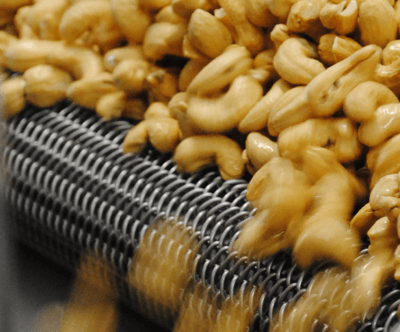
Set to be on display at WTCE, Snackbox’s Cashew Nuts product is the result of a project with Mozambique-based Sunshine Nut Co. where 90 percent of profits go back to the community
Never touched before
Inflight food and beverage service is significant to the passenger experience because it creates the biggest opportunity for connection with the crew, says Patrick Den Drijver, Sales Manager Airlines for Dutch cheesemaker Beemster. And this is true ten-fold at the front of the cabin, he adds.
“Minimal crew contact equals minimal experience,” he says, looking back on how many airlines temporarily reduced or fully halted cabin service earlier in the pandemic.
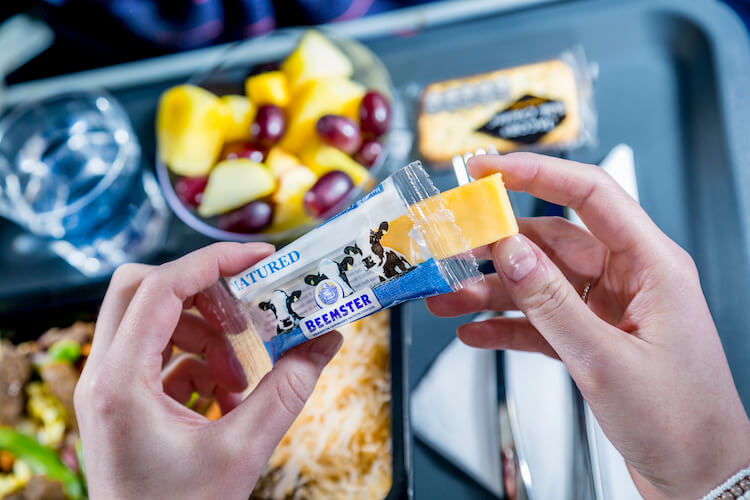
Beemster is looking at ways to reduce plastic in its packaging while keeping cheese fresh
That led to Beemster’s introduction of its Never Touched Before cheese platter concept. The platters were developed to promote less handling between caterer, crew and passenger.
Den Drijver follows this reflection with a positive observation.
“Generally speaking, airlines are shifting back to more traditional ways of serving products, with crew members speaking to you. The focus is on the premium experience, so passengers expect that connection.”
Sustainability is certainly back on the agenda, especially for suppliers, he says. And while this is a huge consideration, cheese packaging is a bit different than crisp or static snack packaging.
“It is difficult with a fresh, refrigerated product. It needs to remain fresh for days without mold – there is a big healthy and safety focus,” Den Drijver says, adding that if the product expires before it can be consumed, there is a different environmental impact happening due to food waste.
“The final product, in this case cheese, is just a small aspect of the entire footprint. It is just a step ahead of the real problem which is the environmental and economic effect of the whole production process, where the products come from and how they are handled,” he says. The company plans to share more about its sustainable farming program in the coming months.
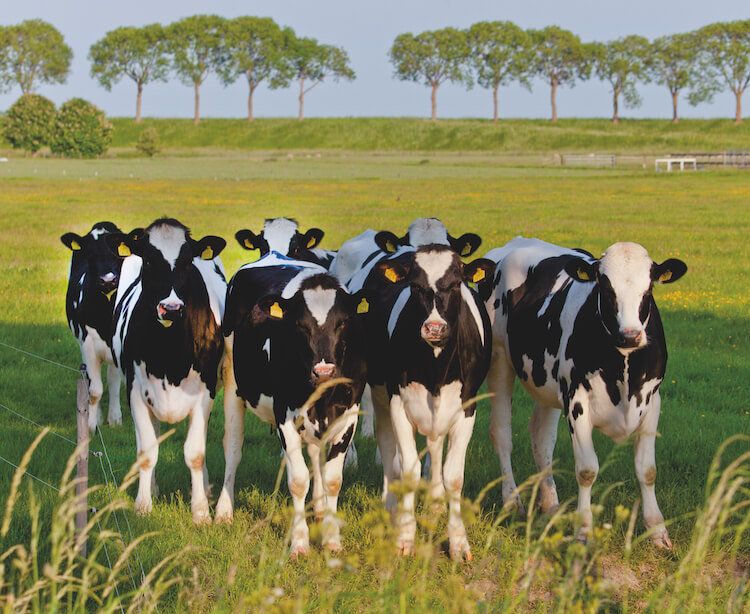
Beemster plans to share more about its sustainable farming program soon
And, Den Drijver says, the company is looking at ways to further decrease the plastic in its packaging. Beemster has successfully reduced the amount of plastic while maintaining food safety by using a degradable plastic that breaks down easily when incinerated. Next the company hopes to shift to using a mono-plastic that can be recycled, he says. The goal is to introduce new packaging by the end of this year.
And Den Drijver says he is confident that at some point in the future, there will be a zero-plastic solution available. Until then, he says suppliers and airlines should work together to educate passengers on food safety, food waste and production processes – perhaps by sharing information on the product packaging itself.
Heineken goes green
In February Heineken and KLM Royal Dutch Airlines announced a commitment that Heineken and Heineken 0.0 beer, served inflight and in lounges, is now brewed with 100 percent green energy. Heineken has committed to operate climate-neutral in its own production by 2030. The relationship between the airline and brewer spans more than 20 years.
“By sharing this commitment to serving Heineken brewed with green energy to KLM passengers, we contribute to the Heineken’s sustainability commitments. We are proud to be partnering with KLM in this initiative,” said Alexander de Nerée tot Babberich, Global Account Manager Airlines, Global Duty Free Heineken, at the time of the announcement.
Heineken has been making “green” moves in the Dutch market for more than a decade, and last summer, Heineken announced that all beer for the region would be brewed with 100 percent green energy. Since 2010, the company’s breweries in the Netherlands have been working to reduce CO2 emissions. The company has added wind turbines and solar panels and the supply of biogas (a mixture of gases that is a renewable energy source) from its nearby wastewater treatment plants at the breweries in Zoeterwoude and Den Bosch.
Heineken said that the amount of sustainably generated energy is at least equal to the energy required to brew and package Heineken beer. This is known as a mass-balance approach and is common in the green energy market.

